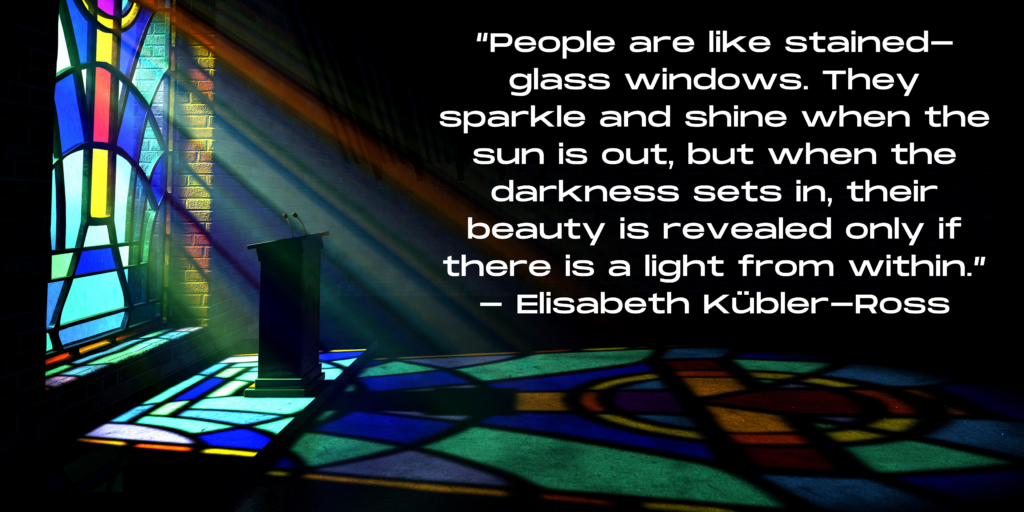
Resilience is the ability to overcome adversity. For those of us with spinal cord injuries, or another physical disability that requires the use of a wheelchair, difficulties and misfortunes are everywhere. Resilience is defined as the capacity to recover quickly from difficulities. But what is required to become resilient? Are we born with it or is it a skill that you can develop?
I think it’s the latter.
As I move along my life journey, I collect more and more information that makes me believe that those that can recover “better” from adversity have the skills, self-care practices, and mindset in place that allows the idea of wholehearted living. The idea of living with an expansive, open heart and sitting in uncomfortable emotions without numbing. In essence, they have done the work to begin to heal the trauma they have endured. Dr. Brené Brown writes that wholehearted living means “cultivating the courage, compassion, and connection to wake up in the morning and think, No matter what gets done and how much is left undone, I am enough.”
Wholehearted living is about believing that you are worthy and enough simply because you exist – not based on your productivity, beauty, or any other factors.
You are worthy and enough!
But what makes a person resilient? Dr. Brené Brown described 5 common factors that her research has uncovered of resilient people in her book The Gifts of Imperfections:
- They have good problem-solving skills when faced with a barrier and know how to use resources available to them
- They are more likely to ask for help from others.
- They believe that they can do something that will help manage their feelings and to help with coping.
- Social supports are available to them
And,
- They are connected with others – such as family, friends, or other loved ones
My spinal cord injury will be 15 years ago this July (2022). Throughout these past 15 years, I have always said that wheelchair users must be good problem solvers. In a world that is inaccessible most of the time, you have to find creative solutions to barriers. To me, that’s what made me resilient – my ability to problem-solve. But lately, I’ve learned that that’s only part of the equation. You can’t do everything on your own, no matter how bad you want to.
You have to reach out and have the courage to be vulnerable. That was a hard lesson that I’ve learned.

I’ve really had to communicate my needs and feelings. Something that was never safe for me to do before – or at least that was my perspective. The more I practiced with those I really cared about, the more “me” I felt. I better I felt.
Sure, it’s been super hard. Like, I have never cried more in my life than I have in the past year. But it’s because I’m feeling what I’m feeling and I’m learning from it. Anger, sadness, and other “heavy” emotions are not “bad.” They serve a purpose and you deserve to feel them and speak them. One major idea that I have learned from reading about Dr. Brené Brown’s shame research is that you MUST speak about it in order to move through it. If you bury it, suppress it, it activates a thriving environment for more heaviness.
According to The Gifts of Imperfections, we all have something called protective factors. Protective factors are the things we do, have, and practice that give us “the bounce.” I like to think of this as the things we do, have, and practice that hype us up in an empowering way that makes us feel good and alive. Resilient people's most common protective factors are the 5 I listed above, but there are certainly more.
So where do I start?

The journal prompt I posted on Instagram at the beginning of the week was “What do you admire about yourself?” Do you know what you admire about yourself? When I first did this prompt, I really had to dig deep. I was so conditioned to look at my negatives (although I’m usually the first to see positives in others) that I wasn’t familiar with what I do about myself.
If you struggle with seeing your worth or feeling like you are enough, I suggest starting with this prompt. And, follow me on Instagram (@megs_hammond) to get a new journal prompt every Monday. Or, check out my 2-week journaling guide for FREE in the shop section of my website for more. The more you discover about yourself, the more you can show up for others authentically and wholeheartedly.
Knowledge is such a powerful tool. But only if we are being kind and gentle with ourselves as we work to discover who we are.
In Gifts of Imperfections, Brené explains that wholeheartedness is as much about embracing our vulnerability as it is about developing knowledge and claiming power. I would highly recommend picking up this book to learn more about wholehearted living and her research on shame. We’ve all got it and the only way it grows is to not speak about it. It’s time we start the conversation.
If you would like more information on anything I spoke about here, leave me some feedback either here – below this post, e-mail me (thewheellifeblog@gmail.com), or on any of my social media platforms! (IG/TW/TT @megs_hammond). As I just mentioned, I do have a free 2-week journaling guide that you can download from my website if you are interested in starting your journaling practice. I would love to hear from you and what I can do to help. If there is ANYTHING that you want to hear about – please let me know! I can’t do any of this without YOU, so I would love to connect with you!
Let’s keep those happy thoughts, productivity, and self-care going! Until next time, live honestly, passionately, and with kindness! Take care!

Megs